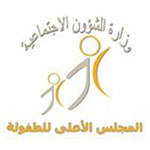Source : The
Daily Star – Lebanon News 22 December 2016
By : Federica
Marsi
BEIRUT: Stigma
prevents many convicts in Lebanon from fully reintegrating into society upon
their release, but for women finding a job and re-establishing social and
familial ties can be even more arduous. Asma – not her real name – was
convicted of fraud and spent six weeks in the Baabda Central Women’s Prison.
Despite the brevity of her sentence, the experience changed her life
significantly. “I obtained a taxi license before being convicted, but now I
risk having both my license and my car taken away if I drive while having a
criminal record,” Asma told The Daily Star.
Ex-convicts like
Asma who have served time for a minor offense have to wait three years before
their criminal record is cleared, while those convicted of more serious crimes
have to wait seven years. In the meantime, finding an actual job is almost
impossible.
However, the
greatest blow Asma received upon her release came at the hands of her
ex-husband.
“When I got out of
prison I found out he had taken our five children to an orphanage. Now I cannot
have them back because I have a criminal record and not enough money to provide
for them,” Asma said.
According to her,
the fraud she was condemned for was conducted by her employer without her
knowledge, but she could not afford proper legal assistance.
It has now been a
year and five months since her release and Asma holds a newborn in her arms
while she talks of her struggle to regain custody of her other five children.
When her baby is older, she hopes to find work through the NGO Dar al-Amal,
which paid the bail to get her out of prison and has provided her with support
ever since.
Hoda Kara, director
of Dar al-Amal, assists women like Asma in the painstaking task of
reintegrating into society. “Lebanon is a wealthy country with a high demand for
prostitution and drugs,” Kara told The Daily Star. “This is easy money and a
woman must be brave to decide to quit [and earn less].”
Dar al-Amal works in
detention facilities in Baabda, Tripoli and Zahle where they offer vocational
training and psychological support to women to help prepare them for social
reintegration. These three locations hosted over 600 women in 2016, according
to statistics released by the NGO.
“There
is a common belief that a woman who has been in jail needs to demonstrate her
good conduct before the criminal record is cleared. But how can
they find an alternative to crime if they are not entitled to a normal job?”
Kara said.
One of Dar al-Amal’s
services is organizing vocational training for female ex-convicts and putting
them in touch with prospective employers. However, finding businesses willing
to employ women with a criminal record is an obstacle that the NGO is still
trying to overcome. So far, three seminars aimed at encouraging businesses to
hire ex-convicts have been held, with the support of the Chamber of Commerce.
“We prepare them for
social reintegration while they are in prison and we do not ask employers to
hire anyone we are unsure of,” Kara explained, adding that the NGO is often
required to act as a guarantor. Sawsan Jabri, a member of the board of the
Chamber of Commerce and co-owner of a diet center in Beirut, is among those who
believe a clear criminal record should not be a condition for employment. “I
would employ these women in my business if only I could do so,” Jabri said.
“They face discrimination in the job market and the government should abolish
the requirement of the criminal record altogether.”
Through Dar al-Amal,
a number of private initiatives are offering current and former convicts a
second chance. One of them is Sarah’s Bag, a fashion house and social
enterprise that employs convicts and women in vulnerable situations. “I didn’t
want to create what all charities do: a product which customers buy only
because it is charitable to do so,” founder Sarah Beydoun told The Daily Star.
“I wanted to create a product that people would want and that benefits women at
the same time.”
Thanks to
professional training, women inside and outside prison became skilled in hand
beading, embroidery, sequinning, crocheting and fabric manipulation. The
outcome is a collection of sophisticated accessories that reinterpret
traditional crafts that are currently sold around the world, including in
Europe, Asia, Canada and across the Middle East.
As Beydoun
explained, a jail sentence is often the result of a lack of resources and
education. Offering ex-convicts an alternative helps eliminate the
circumstances that led the women to commit a crime.
Khawla – not her
real name – spent five years in Baabda prison for drug dealing. During her time
in jail, she helped her son financially by working for Sarah’s Bag and other
companies. As well as allowing her to contribute to the expenses for her
niece’s surgery, working was also a healthy pastime. “In prison you don’t have
your family, children and relatives, you are alone with your mind,” Khawla
said.
Despite the efforts
she made to help her family, Khawla feels responsible for her daughter-in-law’s
choice to leave the house when her son agreed to take her in after her release.
“She did not want to have anything to do with me because I had been in prison,”
Khawla said, sitting in the living room of Dar al-Amal’s shelter in Sin al-Fil.
“Sometimes I think life in prison was better. There, at least, no one judges
you.”
A version of this article appeared in the print edition of
The Daily Star on December 22, 2016, on page 3.



